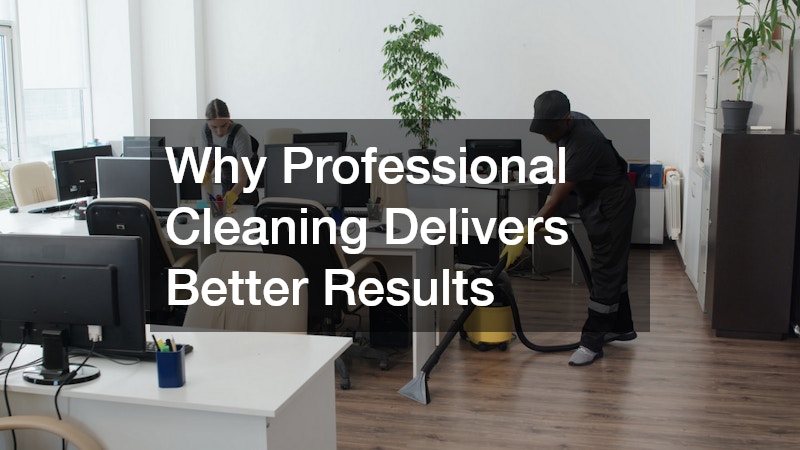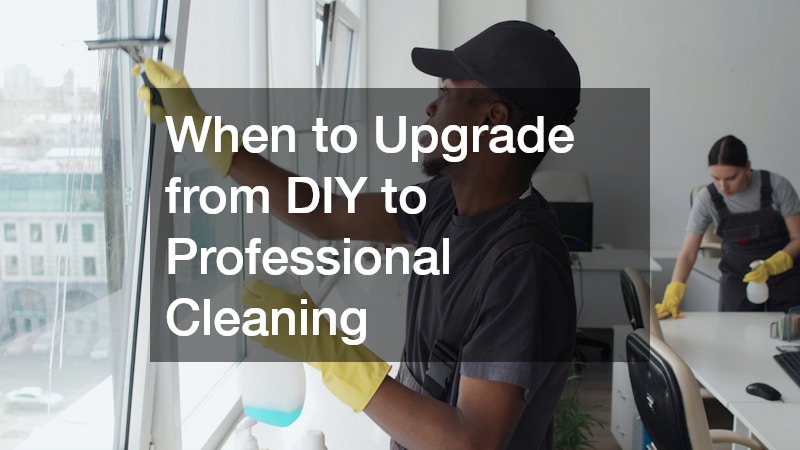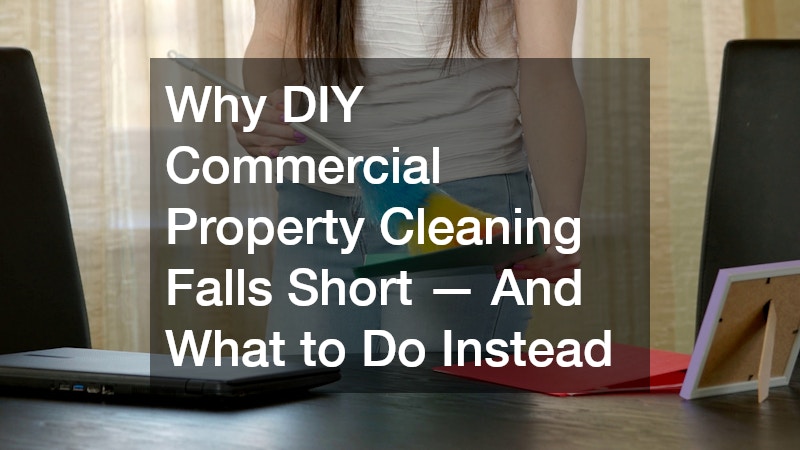
For many business owners and managers, handling cleaning tasks in-house may seem like a cost-saving strategy. After all, your team knows the space, and basic cleaning tools are readily available. However, maintaining a truly clean and healthy commercial property requires more than just a mop, broom, and a few hours of staff time. DIY commercial property cleaning often falls short of the professional standard, leaving behind hidden dirt, harmful germs, and even long-term damage to surfaces.
In this article, we’ll explore the limitations of DIY cleaning, why professional services are worth the investment, and how upgrading your cleaning approach can benefit your business’s reputation, health, and bottom line.
The Hidden Risks of Inadequate Cleaning
While DIY cleaning may handle visible messes, it often fails to address deeper issues that affect both appearance and safety. Commercial properties see high foot traffic, making them breeding grounds for bacteria, allergens, and pollutants. Without the right cleaning techniques and products, these contaminants can linger on surfaces, in carpets, and in ventilation systems.
Furthermore, improper cleaning methods can actually cause damage. For example, using harsh chemicals on delicate surfaces or failing to dry areas properly can lead to deterioration, mold growth, and costly repairs. Over time, these risks can compromise the health of employees and visitors, as well as the overall structural integrity of your property.
Why Professional Cleaning Delivers Better Results

Professional cleaning companies are equipped with specialized tools, advanced techniques, and trained personnel who understand the nuances of cleaning different surfaces and environments. This ensures every area — from high-touch points to hard-to-reach corners — is thoroughly sanitized.
Some of the advantages of professional cleaning include:
- Consistent quality: Scheduled services maintain cleanliness standards at all times.
- Specialized equipment: Industrial vacuums, steam cleaners, and disinfecting machines reach beyond surface-level dirt.
- Proper sanitation: Professionals use commercial-grade disinfectants that kill harmful bacteria and viruses effectively.
- Expertise in compliance: They ensure your property meets health and safety regulations.
By contrast, a DIY approach may skip these deeper processes due to limited resources, training, or time.
The Time and Resource Drain of DIY Cleaning
One of the most overlooked drawbacks of DIY cleaning is the impact on productivity. Assigning cleaning tasks to employees who were hired for other roles can reduce efficiency and lower morale. Staff may feel burdened by extra responsibilities that take them away from their primary job functions.
Additionally, purchasing and maintaining cleaning equipment and supplies can add up quickly. Many business owners underestimate the long-term cost of DIY cleaning compared to outsourcing, which bundles labor, products, and equipment into one service fee. Over time, professional cleaning can be a more cost-effective choice.
Commercial Cleaning Checklist: Setting the Standard
Even if you have an in-house cleaning routine, following a commercial cleaning checklist can reveal areas you might be missing. A thorough checklist includes:
- Dusting light fixtures, vents, and high surfaces
- Cleaning and sanitizing doorknobs, switches, and handrails
- Deep cleaning carpets, upholstery, and drapes
- Sanitizing restrooms, including walls and partitions
- Washing windows inside and out
- Polishing floors and applying protective finishes
- Cleaning HVAC systems to improve air quality
Professional cleaners use such checklists to ensure no detail is overlooked. Without a structured plan, DIY cleaning often prioritizes only the most visible areas, leaving hidden zones neglected.
Impact on Brand Image and Client Perception
First impressions matter. A clean, fresh-smelling workspace signals professionalism, attention to detail, and care for your clients’ well-being. On the other hand, dusty corners, smudged glass, or lingering odors can instantly undermine confidence in your business.
In industries like hospitality, retail, or healthcare, cleanliness is directly tied to customer satisfaction and loyalty. Even in office settings, a tidy and well-maintained environment boosts employee morale and productivity, making your workplace more inviting for both staff and visitors.
DIY cleaning, while well-intentioned, can easily miss these crucial touchpoints that shape how clients perceive your brand.
When to Upgrade from DIY to Professional Cleaning

If your business is experiencing any of these signs, it’s time to consider a professional service:
- High employee sick days due to poor hygiene or air quality
- Increasing customer complaints about cleanliness
- Noticeable wear, stains, or odors that regular cleaning can’t fix
- Difficulty maintaining consistent cleaning schedules
- Expanding business operations with more foot traffic and workspace
By outsourcing to experts, you ensure these issues are addressed proactively rather than reactively, protecting your investment and your reputation.
Final Thoughts: Investing in Professional Cleaning Pays Off
DIY commercial property cleaning might seem like a budget-friendly choice, but it often comes with hidden costs, from health risks and lost productivity to damage repair and reputational harm. Professional cleaning services go beyond the basics, using industry expertise, specialized tools, and detailed checklists to maintain your property at the highest standard.
For business owners and managers, the decision to outsource cleaning isn’t just about appearances — it’s about safeguarding the health of everyone who steps into your space, preserving your assets, and presenting your brand in the best possible light.


